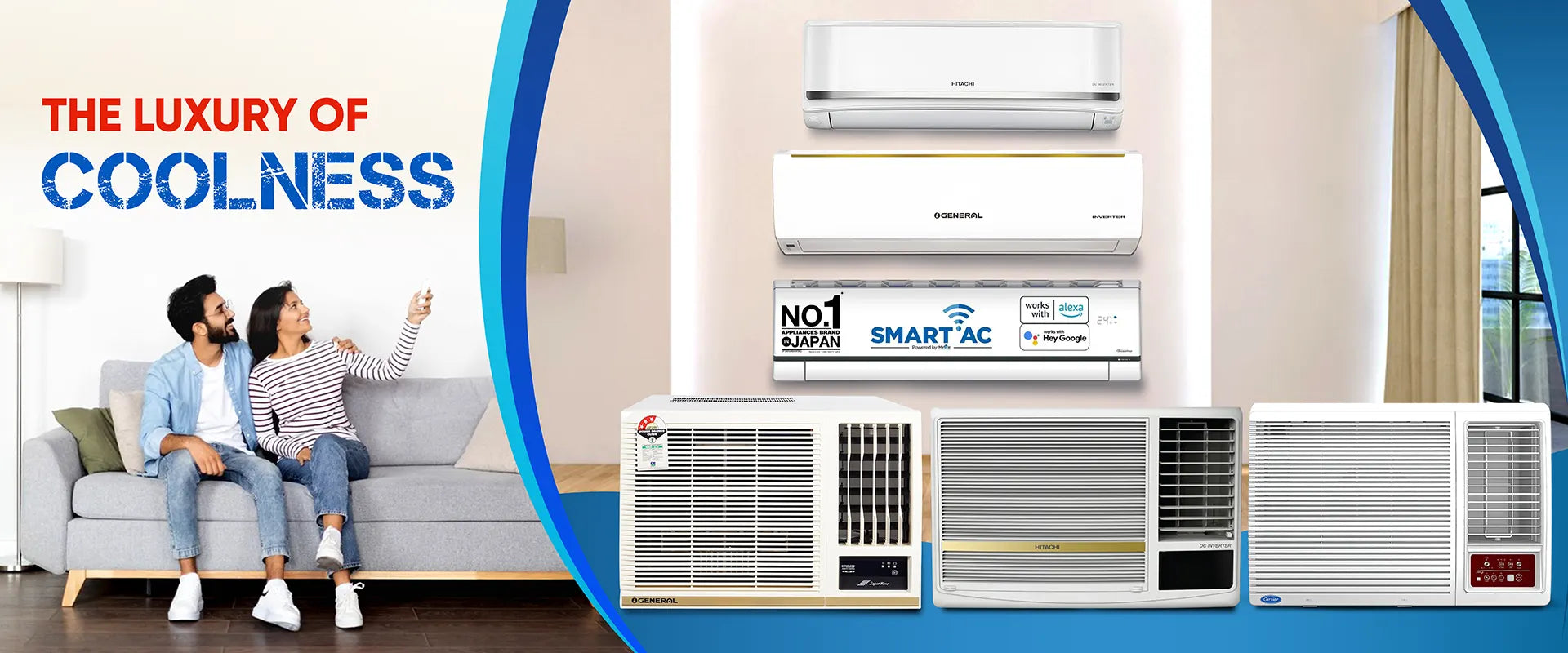How To Select The Right AC For Your Home?

Choosing the right air conditioner (AC) for your home is essential for maintaining comfort and energy efficiency. With various options available in the market, making the right decision can be overwhelming. This guide will help you understand the key factors to consider when selecting the perfect AC for your needs.
1. Determine the Right AC Type
There are different types of air conditioners, each suited for specific requirements. Here are the most common ones:
Split AC
-
Ideal for medium to large rooms.
-
Consists of two units: an indoor unit and an outdoor compressor.
-
Offers efficient cooling and is quieter compared to window ACs.
Window AC
-
Suitable for small rooms.
-
Compact design with both the compressor and blower in a single unit.
-
Easier to install but may be noisier than split ACs.
Portable AC
-
Suitable for temporary cooling needs.
-
Easy to move between rooms but less energy-efficient.
Inverter AC
-
Energy-efficient and maintains a consistent temperature.
-
Adjusts compressor speed based on the cooling requirement, consuming less electricity.
2. Choose the Right Cooling Capacity
Selecting the correct tonnage is crucial for effective cooling. The capacity of an AC depends on the room size:
-
Up to 120 sq. ft. → 1 Ton
-
120 – 200 sq. ft. → 1.5 Ton
-
200 – 300 sq. ft. → 2 Ton
Choosing an AC with the right capacity ensures efficient cooling and prevents excessive power consumption.
3. Check Energy Efficiency Ratings
Energy efficiency is a key factor in reducing electricity bills. Look for the BEE star rating on the AC unit:
-
5-star AC → Highest energy efficiency, lower electricity bills.
-
3-star AC → Moderate energy efficiency, suitable for occasional use.
-
2-star or below → Lower energy efficiency, not ideal for regular use.
Opting for an inverter AC also ensures lower power consumption over time.
4. Consider Air Quality Features
Modern ACs come with built-in air filters and purifiers that improve indoor air quality.
Look for features like:
-
PM 2.5 filters: Removes fine dust and pollutants.
-
Anti-bacterial filters: Keeps the air clean and germ-free.
-
Dehumidification mode: Ideal for humid regions, reduces excess moisture in the air.
5. Noise Levels Matter
If you value a peaceful environment, consider the noise levels of the AC.
-
Split ACs are generally quieter than window ACs.
-
Check the decibel (dB) rating mentioned on the AC – lower dB indicates quieter operation.
6. Smart Features and Technology
Modern ACs offer smart features that enhance convenience:
-
Wi-Fi connectivity: Allows remote control via smartphone apps.
-
Voice control: Compatible with Alexa or Google Assistant.
-
Auto-clean function: Prevents mold growth and keeps the unit clean.
7. Budget and Warranty
While selecting an AC, consider your budget and the warranty offered by the manufacturer.
-
Compare prices across brands.
-
Look for extended warranty options on the compressor, as it is the most expensive component.
-
Factor in installation costs and annual maintenance charges.
Conclusion
Selecting the right AC for your home involves considering factors such as type, capacity, energy efficiency, and additional features. By choosing an AC with the appropriate tonnage, energy rating, and smart technology, you can enjoy efficient cooling and lower electricity bills.
Invest wisely in an AC that offers durability, comfort, and energy savings for years to come!





